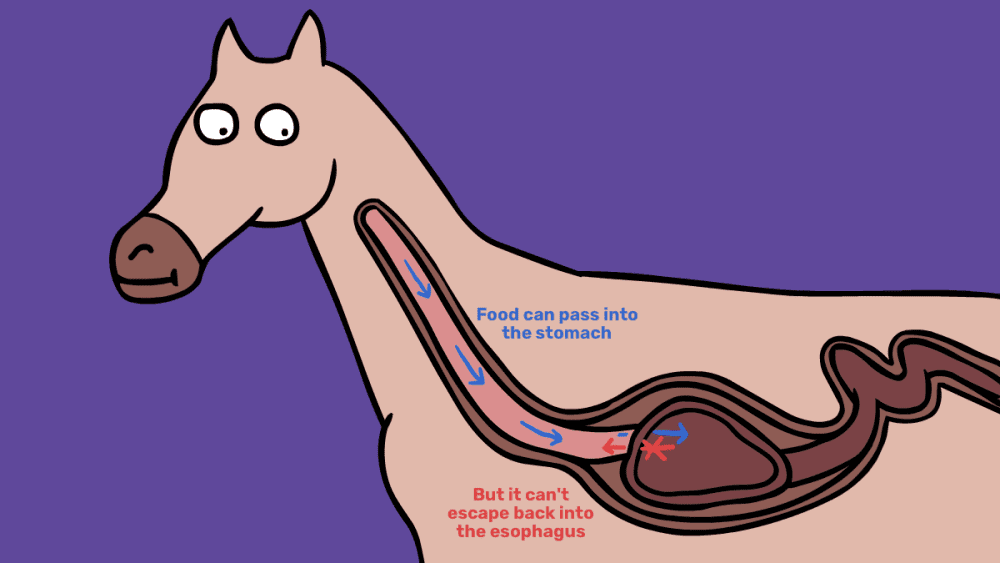Unlike us humans and our two-way esophaguses, horses can’t vomit. The ability to throw up can be life saving for some animals, including humans, so how come horses have to keep everything down?
The reason why horses can’t vomit is to do with the way in which their digestive tract has evolved to be a one-way system. As food moves along it, contractions and sphincters mean that there’s no turning back, to the extent that if pressure builds in the stomach due to gas or being over full, the stomach wall is more likely to give way than the food go back up the animal’s esophagus.
Can horses vomit?
No, horses can’t vomit, and there are several explanations as to why. Firstly, they are grazers meaning they chew on small volumes of food over long periods of time. If you imagine a mouthful of grass, the horse needs that to slip down its long neck and into the gut without venturing back toward the mouth even when its head is grazing down on the ground.
To prevent the horse from having to hold its head up to swallow anything all the way to its stomach, they’ve evolved to have a strong, one-way system that moves lumps of food through peristalsis: contraction of the esophagus muscle to squeeze food in one direction. There’s also a strong cardiac sphincter where the esophagus meets the gut at a sharp angle, making it pretty much impossible for anything to travel back the other way.

For horses, the digestive tract is a one-way street. Image credit: ©IFLScience
So, no horse in the history of Earth has ever vomited?
Not quite. There are some unique circumstances in which food that’s gone into a horse’s mouth might come back up again. If a horse is choking, the lodged matter may come back up from the windpipe it’s accidentally slipped into, something that’s not technically vomiting but might look like it from the outside.
Severe gastric complications like a ruptured stomach may also result in food coming out the mouth, but this is a traumatic response rather than being a normal physiological function of the horse’s body. If you think your horse is vomiting, you should speak to a vet immediately.
Why can’t horses vomit?
It’s thought that the iron stomachs of horses are an adaptation that means they can forage and flee without risking being sick in the process. Strong sphincter action keeps food tightly stored in the gut when a horse is running, and peristalsis stops food from slipping back towards the mouth if the horse is grazing on the ground. A horse would be more likely to survive were it not being sick while navigating such scenarios, making it a favorable trait in the eyes of evolution.
However, that’s not to say that you don’t make them sick to their stomach every time you ask, “Why the long face?”
On the topic of weird horse facts, did you know they have a crusty remnant of evolution stuck to the inside of their knees?
Source Link: Can Horses Vomit? No, And Here's Why